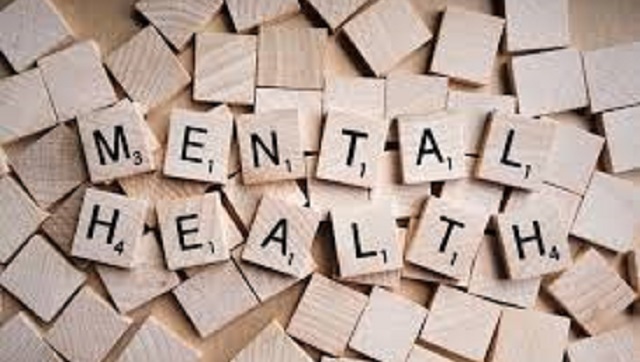Not again … how to protect your mental health in the face of uncertainty and another COVID variant. Reports about the latest COVID variant of concern, Omicron, have exploded all over the news. No sooner had we learned its name, it had arrived in Australia.
Waves of familiar dread are washing ashore for many, just when there was fresh hope we would soon put all this behind us. Will there be masks and lockdowns again? Will we need booster shots? What about border closures? Some will be worrying about getting refunds for their interstate Christmas holiday trips. Many others may be grappling with a sense of déjà vu and hopelessness – wondering how they will get their life and mental health back on track, again. In August, calls to the 24-hour crisis support service Lifeline Australia peaked at 3,505 calls per day – the highest number of daily calls in its 57-year history. Since the start of this year, 694,400 distressed Australians have called Lifeline for help, often for issues relating to economic hardship, relationship breakdowns, loneliness, and self-harm. The call numbers in September stayed just as high, and were 30 percent higher than the same time last year. The latest report from Australia’s Mental Health Think Tank shows COVID has compounded emotional, social and financial pressure for already vulnerable groups, including children and young people, Aboriginal communities, women, health care workers, those who are in insecure jobs or unemployed, and those with existing mental or physical illnesses. As we continue to live in uncertain times, there are things we can do to boost our mental immune system to help us stay as resilient as we can, for whatever 2022 may bring.
1. Focus on nutritious brain food
Pay attention to what information your brain has consumed today – has it been fed a diet of doomscrolling and bad news about things largely outside our control? Uncertainty makes us feel anxious and fearful, which leads us to pay more attention to negative information in our environment, interpret ambiguous situations as threatening, and worry about how things could go wrong. Our mood shapes what comes to mind, and what comes to mind also influences how we feel. So when we feel bad, negative things come to mind easily, which makes us feel bad – forming a negative loop. On top of this, if our brains are flooded with negative pictures and information from news and social media, then when we think of our future, our minds will easily be filled with compelling yet distorted negative images and thoughts. This can fuel a negative cycle of anxiety and despair, making us feel hopeless and helpless. My own research asked people to track how often their mind wandered during a computer task, what they were imagining and feeling. We found people who were less likely to imagine positive aspects of the future when mind wandering were also less optimistic about the future, which was in turn linked to low moods, sadness and anxiety.
2. A daily dose of rewarding activities
When we feel out of control, it can be hard to muster the energy to do things that are pleasurable or that are hard work but ultimately make us feel proud of ourselves. Yet we know this is precisely the time we must keep doing rewarding activities. Whether it’s cooking, working in the garage, going for a jog, or listening to music, doing things we find rewarding and that absorb our attention can boost our positive emotions, recharge our energy, and even treat depression. If motivation is lagging, evidence shows imagining ourselves engaged in activities we want to do more of, but keep putting off, can make it more likely we’ll will do them.
3. Connecting with and helping others, helps us
Humans are social animals who need to feel connected to others. Preliminary findings from a survey study we conducted during lockdown last year found those who maintained frequent social interaction with people they felt close to experienced lower levels of loneliness. This was particularly true for those already experiencing elevated depression symptoms. Helping others greatly benefits our own mental and physical well-being and builds a buffer against negative stress. We can help others or give them the gift of helping us because it’ll likely make them feel better too.
4. Build a mental toolkit
The right time to boost mental resilience is now – but it can be hard to navigate all the information available. Look for information that’s evidence-based and resources that have been checked by experts. The Head to Health site is a good place to start. COVID has seen a rise in telehealth and online counselling. If you think counselling or therapy might be useful, you could try an evidence-based cognitive-behavioural therapy course online, such as This Way Up. Orygen’s Moderated Online Social Therapy for 15–25 year olds aims to support young people while they’re waiting for face-to-face care. It is available in Victoria and will soon be available in Queensland. The Black Dog Institute provides evidence-based digital mental health tools and resources.
Hang in there
Living through a pandemic is testing our resilience and challenging our coping abilities in ways they’ve never been challenged before. But new tools, expert advice and support is available. Julie Ji, Postdoctoral research fellow, School of Psychological Science, The University of Western Australia. This article is republished from The Conversation under a Creative Commons license. Read the original article.


)

)
)
)
)
)
)
)
)



